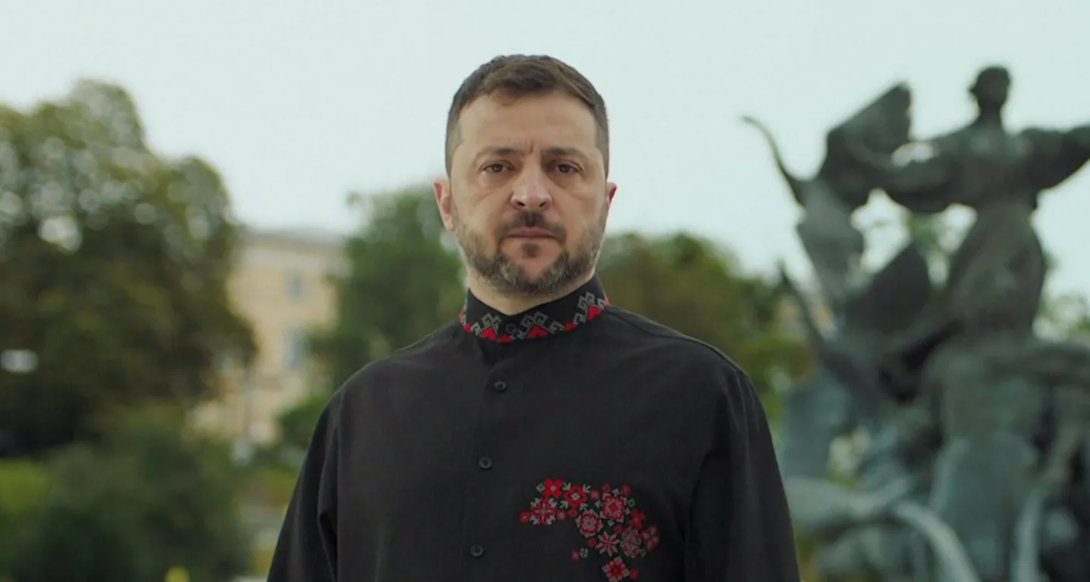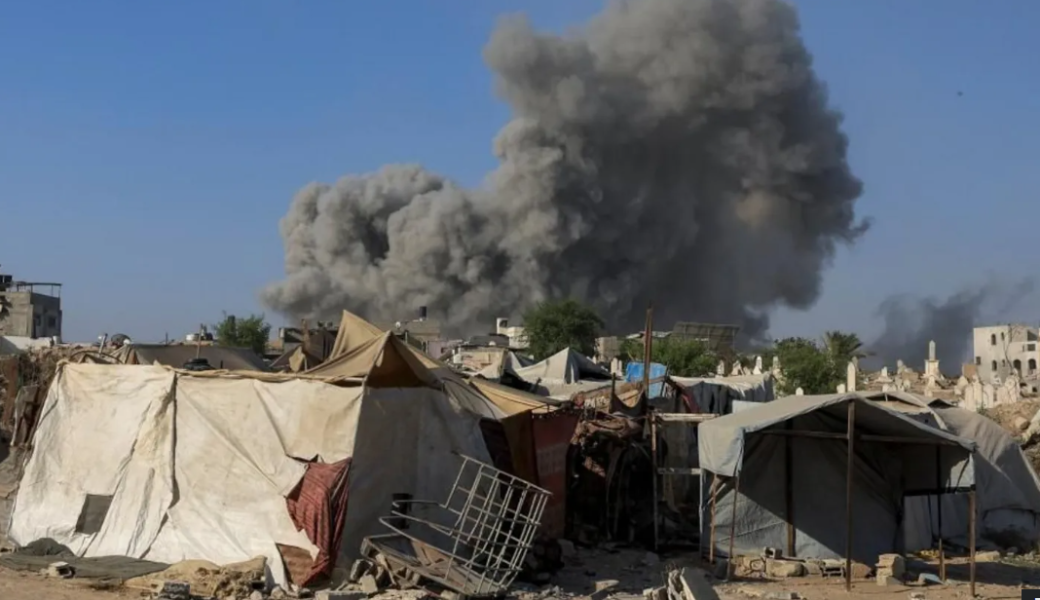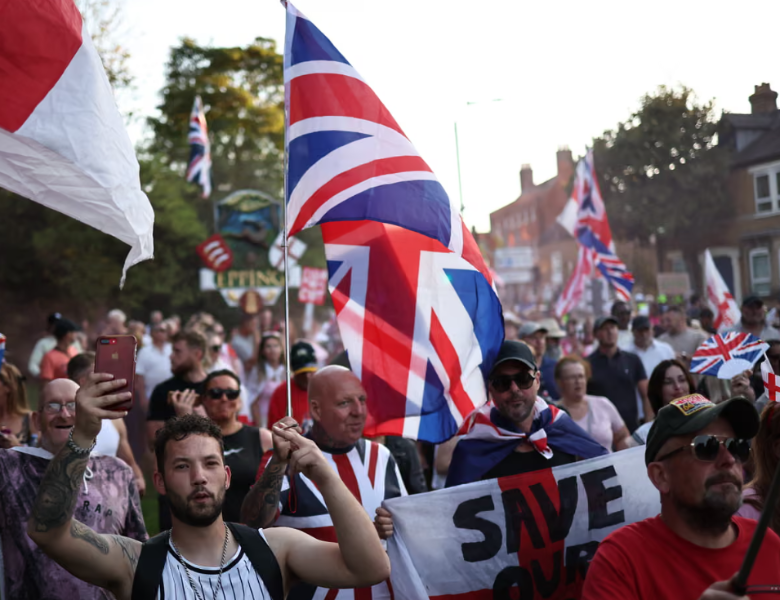-
Posts
37,428 -
Joined
-
Last visited
-
Days Won
5
CharlieH last won the day on March 10 2021
CharlieH had the most liked content!
Profile Information
-
Location
Thailand
Previous Fields
-
Location
Thailand
Recent Profile Visitors
129,309 profile views
CharlieH's Achievements
-
Mr Sampler, a veteran rat hunter using traditional methods with Lakeland terriers, has issued a stark warning about the UK's worsening rat problem. "After a good summer, a bad winter follows," he claims, noting that the issue has escalated over the years. Nowadays, catching rats up to 22 inches long has become common, with some resembling small dogs. The increase in rat size and population is attributed to the growing amount of waste and discarded food compared to two decades ago. Sampler leads a pest control group active on social media, where his team regularly reports catching 19 to 20-inch rodents, particularly in farms, warehouses, and late-20th-century houses. Crumbling cast iron pipes in these homes often allow easy entry for the rats. Local councillor Paul Salvin expresses concerns over improper food disposal, fearing the planned 2026 rollout of food waste bins could worsen the situation. He urges water companies to do more in preventing rats from entering homes, suggesting that collective action is essential. The UK is reportedly home to around 250 million rats, some of which carry diseases such as Weil's disease, transmissible to humans. A recent case saw a 22-inch rat captured in a home in Redcar and Cleveland, leaving locals shocked after its picture was shared online by politicians. In Dagenham, mounds of rubbish have earned the area the nickname 'Ratland', providing a feast for the growing rat population. Meanwhile, Birmingham's ongoing bin strikes have exacerbated the problem, with vermin thriving amid uncollected trash. University student Sandy Du explains her frequent encounters with "rats the size of baby cats" near her accommodation, highlighting the rodents' persistent presence as they scavenge through overflowing bins. The situation has drawn public attention, with concerned residents and local officials calling for improved waste management and pest control measures across the nation. Reports of giant rats seen in daylight, digging through green spaces, indicate how severe the infestation has become. Mr Sampler's team, often working with three to four hunters, has scaled up operations to address larger infestations, sometimes requiring up to 15 people. Their efforts are part of a broader attempt to tackle the rat problem, which some describe as being "beyond a joke." The alarming increase in rat size and population underscores the urgent need for action. Local councils and pest control experts stress the importance of addressing the issue promptly to prevent potential health risks and property damage. Efforts are being made to educate the public on proper waste disposal and the importance of securing homes against rodent entry. However, as rats continue to thrive in urban and rural settings alike, the challenge remains significant. The current situation illustrates a pressing need for coordination between government, local authorities, and communities to implement effective solutions. By addressing waste management practices and investing in infrastructure improvements, the hope is to reduce the rat population and mitigate health risks associated with the infestation. As the UK braces for a challenging winter, the focus is on enhancing pest control strategies to manage the growing threat. Public awareness and community cooperation are key to tackling the rat problem and ensuring public safety in affected areas. Original story in the Daily Mail
-

Report France Summons US Ambassador: Fury Over Antisemitism Claims
CharlieH replied to webfact's topic in World News
A reported post and response quoting it have been removed. -
Better suited to the Electrical Forum....MOVED
-
In a move that has sent shockwaves through political circles, Donald Trump has hinted at a dramatic rebranding of America's military identity Donald Trump has sparked fears of a potential WW3 by proposing the return of the "Department of War" title, a name that was scrapped nearly 80 years ago. This explosive announcement came during a meeting in the Oval Office with South Korean President Lee Jae Myung. The controversial suggestion arose when a routine question about military deployment led Trump to criticise the Pentagon's current identity. He praised Defence Secretary Pete Hegseth, referring to him as part of the "Department of War," the name used until 1947. Trump claimed, "We call it the Department of Defense, but I think we're going to change the name. I think we're going to have some information on that maybe soon." He invoked America's victorious wartime legacy in World Wars I and II as justification for the rebrand. "We had an unbelievable history of victory when it was the Department of War," he argued, suggesting the name change signalled a loss of strength. The proposal has raised eyebrows, with Trump hinting further details would be revealed "over the next couple weeks." He also considered dubbing Hegseth as the "Secretary of War," suggesting the original change was political correctness. However, the 1947 shift to the Department of Defense was linked to practical post-war restructuring. The National Security Act, signed by President Truman, merged the Department of War with the Navy and newly created Air Force under a unified National Military Establishment. Critics warn Trump's move could signal a return to aggressive posturing, challenging long-standing historical decisions. As expected, the proposal has ignited debate over its implications. Adapted by ASEAN Now from The Express 2025-08-26
- 1 reply
-
- 1
-

-
Shocking data shows school children as young as 4 sent home for RACISM Government officials said they are working with teachers to reduce the problem. Shocking data reveals the number of children being sent back home due to racist behaviour. Reception class children – as young as four years old – were among those involved in over 15,000 reported incidents that resulted in pupils being sent home, the data shows. In the past year, schools recorded 15,191 suspensions linked to racist behaviour – averaging roughly 80 incidents each school day. This marks a sharp rise from 11,619 cases the year before, and 9,452 the year prior to that. Over the span of just two years, the number of such incidents has surged by more than 50 percent, highlighting a deeply concerning upward trend. https://www.express.co.uk/news/uk/2099978/shocking-data-shows-school-children
-
As the sun set over the Channel, a quiet yet significant event unfolded, marking a new chapter in a story that has gripped the nation for months. UK faces migrant surge as numbers hit 52,000 since Starmer took office. Nearly 900 migrants made the perilous Channel crossing over the bank holiday, taking the total since Sir Keir Starmer became Labour leader to over 52,000. GB News reported 655 arrivals on Monday alone, with another 212 reaching UK shores on Sunday in four dinghies. This influx highlights significant pressure on the government’s "smash the gangs" policy. Despite a new partial returns deal with France since 5 August, no migrants have been sent back. Instead, a staggering 3,502 have arrived since then. The Channel saw a brief respite in bad weather, allowing crossings that usually occur in the height of summer. This year, numbers have risen by 50%, marking 28,938 arrivals so far—nearly 10,000 more than the same time last year. The flow of migrants continued late into Monday night, with the Border Force vessel Hurricane picking up 73 more after 10 pm.The increasing numbers have put the government under scrutiny. Critics argue that the approach isn't working, as the crisis intensifies. A Home Office spokesperson emphasised the commitment to dismantling people-smuggling operations. The strategy includes international intelligence sharing and strengthened enforcement, supported by the Border Security, Asylum and Immigration Bill. Efforts focus on disrupting criminal networks and securing the borders. Political tensions are mounting as the UK stands at a crossroads, calling for immediate and sustainable solutions to the ongoing crisis. Public demand is growing for firm actions that address both security and humanitarian aspects. The UK faces a fine balance between maintaining border integrity and providing humanitarian aid. The coming months will be crucial in determining how effectively these challenges are met. Adapted by ASEAN Now from The Guardian 2025-08-26
-
Myanmar's Iconic Gokteik Bridge Destroyed Amid Conflict Myanmar's legendary Gokteik bridge is reduced to ruins amidst conflict. Once the world's tallest railway trestle, the colonial-era Gokteik bridge in Myanmar has succumbed to destruction due to the ongoing civil war. The unrest, sparked by a 2021 coup, pits the military against pro-democracy fighters and ethnic armed groups. Both the ruling military junta and anti-coup factions blame each other for the devastation. Junta spokesperson Zaw Min Tun accused groups like the Ta’ang National Liberation Army (TNLA) of bombing the bridge, claiming it was “exploded with mines.” Conversely, TNLA spokesperson Lway Yay Oo denied involvement, accusing the junta of drone strikes that accidentally damaged the bridge. This historical structure, spanning 300 metres and soaring 102 metres high, stood as a marvel when it opened in 1901 during the British colonial era. Situated between Nawnghkio and Kyaukme in northern Shan State, it was a key part of the Mandalay-Lashio railway line and a tourist hotspot. Recent skirmishes in nearby towns have heightened tensions, with the junta announcing the recapture of Nawnghkio in July. As Myanmar's junta gears up for a December election, criticised and boycotted by opposition, analysts predict more rebel offensives in protest. Images on social media show the collapsed bridge, marking a significant loss for the nation. Adapted by ASEAN Now from The Guardian 2025-08-25
-

UK Starmer’s 'Crime Wave' Warning as Prisons Face Cell Shortage
CharlieH posted a topic in World News
Labour accused of risking a crime wave as prisons near full capacity. A storm is brewing over Britain's prison crisis, with fears that Labour's potential plans to scrap thousands of short sentences could "unleash a crime wave." The Ministry of Justice warns that prisons might run out of cells by March, sparking concerns over the government's strategy. The latest figures show the prison population, including male, female, and youth offenders, is nearing its limit at 88,273. With fewer than 1,000 male cells, just 222 for women, and 174 youth spots, the situation is desperate. Reports suggest the government might need to scrap short sentences for offences like shoplifting, drug dealing, and even violent crimes. Such measures are seen as necessary to prevent a total collapse of the overcrowded system. Last summer, the Justice Secretary introduced an early release scheme, letting prisoners out after serving just 40% of their sentences. This move was a temporary fix to address the immediate pressures on the prison infrastructure. An MoJ spokesman explained that the government inherited a precarious system and is currently building 14,000 more spaces, with 2,500 already completed. Yet, officials admit that construction alone won't resolve the impending crisis. The pressure is mounting as experts predict a potential influx of prisoners from demonstrations and protests. Supporters of banned groups and anti-migrant demonstrators could add to the already strained resources. With the December election approaching, the situation remains tense. Shadow Justice Secretary Robert Jenrick has criticised Labour's potential approach, warning that scrapping sentences would allow criminals to reoffend with impunity. He highlights the record numbers of inmates and the influx of foreign criminals as growing concerns under Labour’s watch. The debate over how to handle this crisis continues. Governments must carefully balance public safety with the urgent need for capacity. As Britain watches closely, the stakes are high. With authorities grappling to find solutions, the consequences of inaction could be severe. The call for a strategic response grows louder as officials try to find a sustainable path forward. Adapted by ASEAN Now from The Exoress 2025-08-25 -
Tragedy Strikes: Journalists Among 15 Dead in Gaza Hospital Attack In a shocking incident, 15 people, including four journalists, are reported dead after a strike on a Gaza hospital. An Israeli attack on the southern Gaza Strip's Nasser Hospital has resulted in the tragic deaths of at least 15 individuals. Among them were journalists from Reuters, Al Jazeera, Associated Press, and NBC. Rescue workers on the scene faced a second deadly strike. Video footage captured smoke billowing from the hospital. Reuters confirmed that its cameraman, Husam al-Masri, was killed. His colleagues, Mohammed Salameh of Al Jazeera, Mariam Abu Daqa of the Associated Press, and NBC photographer Muath Abu Taha, were also among the victims. The Israeli military and prime minister's office have yet to comment on the attack. As rescuers worked amidst the chaos, another strike added to the devastation. Shockingly, footage shows a doctor highlighting the horrific aftermath as the attacks continued. This incident highlights the increasingly dangerous situation in the region. The world watches as the conflict escalates further. Adapted by ASEAN Now from The BBC 2025-08-25
-
Health insurance premiums for expats in Thailand often increase each year, sometimes without an obvious reason. Understanding why these rises happen and how to manage them can help you stay in control of your coverage and protect your finances. Why do health insurance premiums go up yearly Premiums rise due to several key factors: Medical inflation: Private hospitals and clinics can raise prices annually for consultations, treatments, and medicine. New technology and higher staff salaries add to costs, which insurers then pass on. Ageing risks: Older people generally need more care, making them higher-risk for insurers, so premiums increase with age. Expensive new treatments: Innovations like robotic surgery, gene therapy, and advanced scans improve care but are costly, impacting insurance pricing. More claims: When more policyholders make claims, insurers distribute costs across all members, hence raising premiums. Currency fluctuations: For international plans priced in USD or euros, a weaker Thai baht can make premiums higher locally, even if the foreign cost stays the same. Reviewing your policy each year ensures you’re not paying more than necessary. Get a free quote today! How rising costs affect expats Even without claims, premiums can rise, impacting budgets and coverage. Here are a few reasons why rising premiums could affect expats in particular: Higher costs without using insurance: Insurers may adjust prices based on overall healthcare spending, not individual claims. Retirees feel it most: Those on fixed incomes may struggle to maintain full coverage. Budgeting challenges: Unplanned increases can force some to downgrade or drop coverage, leaving them exposed. Rising Thai medical costs: Medical inflation in Thailand averages 5 to 9% yearly, making insurance essential to avoid unexpected bills. With rising costs in mind, be sure to regularly review your policies and stay on top of costs to make sure you maintain the coverage that you need. Ways expats can save on health insurance Here are a few practical strategies to reduce premiums without compromising protection: Choose a higher deductible: Lower monthly or yearly payments in exchange for higher out-of-pocket costs when care is needed. Review coverage annually: Adjust your plan to remove unnecessary benefits like maternity or global coverage. Pay annually: Insurers often offer discounts for full-year payments. Use wellness or no-claim rewards: Some plans offer up to 10% savings for staying healthy or claim-free. Pick a flexible provider: Companies like Cigna allow customisable plans to fit your lifestyle and needs. Extra tips: use in-network hospitals, consult a broker, or leverage Thai social security if eligible. Why the right provider matters A trusted insurer makes a big difference for expats. Here’s why: Flexible expat plans: Plans such as Cigna adjust coverage, benefits, and deductibles as your needs change. Global network and support: Gain access to over 1.7 million doctors and clinics worldwide, with 24/7 multilingual help and telemedicine options. Clear pre-existing condition policies: You know what’s covered and get support for long-term care. Visa-compliant coverage: Get plans that meet Thai visa requirements, simplifying renewals. Cost-saving options: Higher deductibles, annual payments, and no-claim bonuses help manage long-term expenses. With a reliable provider like Cigna, health insurance becomes more than coverage; it’s a partner in managing your health and finances while living in Thailand.
-

Funniest thing you ever saw your kid do?
CharlieH replied to jaywalker-2's topic in Family and Children
Enjoy it while you can, savour those memories, you"ll be watching her graduate in no time.😃 -
In a passionate address, President Zelensky reaffirms Ukraine's resolve amid ongoing conflict and international support. On Ukraine’s Independence Day, President Volodymyr Zelensky declared the nation’s unwavering commitment to its freedom in a speech that underscored resilience against Russian aggression. "We need a just peace, a peace where our future will be determined solely by us," Zelensky proclaimed, adding that Ukraine would continue its resistance until peace calls are acknowledged. His remarks followed accusations from Moscow that Ukraine had targeted Russian power facilities with drone strikes, causing a fire at the Kursk region nuclear plant. Fortunately, the blaze was swiftly contained, and no injuries were reported. The IAEA has urged both nations to exhibit maximum restraint around nuclear facilities. Celebrations in Kyiv marked Ukraine’s 1991 independence from the Soviet Union, with notable figures like Canada’s Prime Minister Mark Carney attending. Speaking alongside Zelensky at St Sophia's Cathedral, Carney pledged Canada’s steadfast support, committing over $1 billion Canadian in military aid, including drones and vehicles. US envoy Keith Kellogg, also present, received the Order of Merit from Zelensky and assured ongoing US support, reinforcing President Donald Trump's pledge for solidarity. Meanwhile, Zelensky shared King Charles’s heartfelt letter expressing admiration for Ukraine's indomitable spirit and aspirations for a lasting peace. As a gesture of solidarity, Ukrainian flags adorned Downing Street, while the UK Ministry of Defence confirmed the extension of military training programs for Ukrainian soldiers through Operation Interflex. In addition, Norway pledged air defence systems valued at 7 billion kroner, collaborating with Germany to enhance Ukraine's defensive capabilities with Patriot systems. Additionally, Ukraine and Sweden have initiated a joint defence production agreement, enhancing Sweden's rearmament efforts and bolstering Ukraine's military resources. This collaboration underscores a growing international coalition supporting Ukraine’s defence. Amidst these developments, Russia claimed progress by capturing two villages in the Donetsk region, where its forces advance slowly yet persistently. With the conflict stemming from Russia's February 2022 invasion, the territorial stakes remain high. The month has seen intense diplomatic activity, highlighted by a summit between US President Donald Trump and Russian President Vladimir Putin in Alaska. Billed as pivotal for peace, the talks concluded without a breakthrough. Frustrated by stalled negotiations, Trump has contemplated further economic sanctions or tariffs on Russia. Zelensky continues advocating for an unconditional ceasefire, with strong backing from European allies. Despite accusations from Moscow of obstructing peace, Russia’s Foreign Minister Lavrov suggested that Putin remains open to a summit, contingent on an agreeable agenda. As Ukraine stands at a crossroads amidst ongoing conflict, its leaders and allies emphasize steadfastness in the pursuit of peace, reinforcing the nation's commitment to sovereignty and international collaboration. Adapted by ASEAN Now from The BBC 2025-08-24
-
In a dramatic escalation of conflict, Israeli planes and tanks have launched continuous attacks on Gaza City, as Israel intensifies its plans to seize the territory's largest urban area. Nearly a million Palestinian residents face the mounting pressure of these operations, which have caused widespread destruction and insecurity. Residents across the northern and eastern sections of Gaza City report incessant explosions as Israeli forces target strategic locations. Troops have also moved into the Jabalia refugee camp, resulting in significant damage and turmoil. In the last 24 hours alone, Gaza's Hamas-controlled health ministry has recorded 64 deaths and nearly 300 injuries due to Israeli strikes. The overall death toll since the start of this operation exceeds 62,686, with 157,951 reported injuries. This offensive response from Israel follows the deadly Hamas-led attack on southern Israel on 7 October 2023, where approximately 1,200 Israelis were killed and 251 were taken hostage. Israeli Prime Minister Benjamin Netanyahu has vowed to dismantle Hamas entirely, confronting international opposition while pressing on with military plans. In preparation, up to 60,000 reservists are being mobilized to support the operation. Although a full-scale offensive has yet to officially begin, the Israeli military continues its relentless airstrikes and artillery bombardment. Neighborhoods like Zeitoun and Shejayia have suffered significant damage overnight, with intense tank fire reported. The Israel Defence Forces (IDF) have focused on returning to areas such as Jabalia to prevent Hamas forces from regrouping and taking control. International humanitarian organizations express deep concerns over the deteriorating conditions. The United Nations and various NGOs warn of catastrophic humanitarian outcomes should Israel's offensive in Gaza City proceed. Reports indicate more than 90% of homes are damaged or destroyed, with essential services like healthcare, water, and sanitation on the brink of collapse. Eighteen out of 36 hospitals in the region are only partially operational, severely hindering the capacity to address the medical needs of the population. The humanitarian crisis is compounded by the recent confirmation of famine conditions in Gaza City, highlighting the desperate need for aid and relief efforts. Israel plans to evacuate the entire city population to shelters in the south, but continuous displacement has left many already in dire situations. Amid these challenges, Netanyahu is under pressure domestically, particularly from the families of hostages who are urging for negotiations to secure their release. Of the 50 hostages still believed to be held in Gaza, only 20 are thought to be alive. Efforts for a ceasefire led by mediators from Qatar and Egypt suggest a 60-day truce and partial hostage release, but Israel is demanding a complete release of hostages before considering any agreements. The World Health Organization announced that a staff member detained by the IDF in Gaza since July was recently released, though further information remains undisclosed. Meanwhile, the Israeli prime minister faces criticism from within the country, including from those pushing for a strategic approach to both military and diplomatic efforts. As the situation escalates, calls for restraint and dialogue persist, with wider implications for regional stability and international relations. The humanitarian dimension of the crisis grows more acute, prompting calls for immediate and effective responses to alleviate suffering and prevent further loss of life. Adapted by ASEAN Now from The BBC 2025-08-24
-

UK Man Hanging Flags 'Firebombed' and Seriously Injured in Attack
CharlieH posted a topic in World News
A man reportedly suffered injuries from a firebomb attack while putting up St George’s cross flags in Stevenage, Hertfordshire. The incident unfolded just after midnight on Saturday, August 23, as he and a group of friends were attaching flags to lampposts to display their national pride. Footage shared on social media by an account named Thyme to Crusade captured the chaotic scene, showing flames dangerously close to the rear tyres of a stationary vehicle. A voice in the video could be heard describing the situation: "Putting flags up, got petrol bombed." The recording then abruptly cut to a bloodied man, identified only as "Louis," waiting for emergency medical services to arrive. Witnesses at the scene claimed the attack involved a petrol bomb that struck the car, directly impacting Louis and causing visible injuries. An onlooker described those responsible as "cowards and scumbags," condemning the violent act. Hertfordshire Constabulary confirmed receiving reports of an assault on Fairlands Way in Stevenage at approximately 12:09 am. Chief Inspector Sarah Gilbertson, who is overseeing the case, stated that officers responded promptly to the scene and spoke with the injured man. Louis had sustained a laceration to his head, believed to be caused by a glass bottle filled with a lit rag. Following the attack, Louis was taken to Lister Hospital in Stevenage to receive necessary treatment for his injuries. Authorities are treating the incident as a targeted attack, though the motivations behind it remain unclear. In an official statement, Chief Inspector Gilbertson addressed the local community, emphasizing that this was an isolated incident with no broader threat to public safety. "I know this will concern people living locally, but I would like to reassure the community that this was a contained incident," she said. She assured residents that the police are conducting a thorough investigation to determine the circumstances surrounding the assault and to bring those responsible to justice. The incident has added fuel to ongoing debates surrounding national flag displays, patriotism, and the tensions they can sometimes incite. The act of raising national flags, often seen as expressions of pride and identity, has occasionally been marred by controversy and conflict, especially in areas with diverse populations and varying political sentiments. Community leaders and local authorities are urging calm and encouraging dialogue to address underlying tensions peacefully. Meanwhile, Hertfordshire Constabulary continues to appeal for witnesses or anyone with information related to the attack to come forward. They are hopeful that community cooperation will aid in swiftly resolving the case. As the investigation progresses, heightened awareness of the incident serves as a reminder of the importance of community solidarity and resilience in times of adversity. The broader implications of such events highlight the need for continued efforts toward understanding and unity in diverse communities. Adapted by ASEAN Now from The Express 2025-08-24 -
Donald Trump has unexpectedly imposed up to 25% tariffs on 400 categories of UK goods containing steel or aluminium. This expanded range covers items such as washing machines, motorbikes, tableware, and aluminium-packaged products like shampoo and condensed milk. The tariffs have caught many by surprise, sparking significant concern in UK industry circles. Previously, the US had implemented a 10% tariff on most UK imports, but the recent increase subjects steel and aluminium goods to a steeper 25% tax. The announcement by the US Department of Commerce sent ripples through the UK's manufacturing sector, with leaders warning of the potential "very damaging" effects on the industry. Nick Bloor, CEO of Triumph Motorcycles, expressed astonishment at the timing of the announcement, especially considering the recent trade agreement between the UK and US. In May, both countries had agreed on a trade deal to reduce the 25% tariff on UK steel and aluminium exports to zero. However, UK exports remained under the 25% tariff after the Trump administration decided to raise tariffs on other nations to 50%. Graeme Macdonald, CEO of JCB, is set to meet with Business Secretary Jonathan Reynolds to discuss the dire implications of these tariffs. Macdonald emphasized the need for urgency in resolving the issue, stating, "This has blindsided everybody. It's blindsided us, the UK Government, and definitely US customs." The tariff upheaval arrives amid broader discussions within the Trump administration regarding economic strategies. On his platform, Truth Social, Trump highlighted a Congressional Budget Office update touting the tariffs' positive impact on reducing the US budget deficit. The CBO anticipates a reduction of £2.96 trillion ($4 trillion) over the next decade, marking an increase from its previous projection. Beyond the immediate tariff increases, Trump has announced a "major tariff investigation" into imported furniture, signalling his administration's intent to revive domestic industries in states like North Carolina, South Carolina, and Michigan. He noted that the investigation would likely lead to further tariffs, with the aim of bolstering local manufacturing. This unexpected tariff imposition has prompted significant discourse about its potential ramifications for international trade relations and economic alliances. UK businesses and government officials are scrambling to address the impacts, as sectors across the board assess the long-term effects of these trade barriers. The implications for future US-UK trade negotiations are considerable, and analysts suggest this move may complicate diplomatic relations. The sudden tariff increase not only affects economic exchanges but also highlights broader geopolitical dynamics between the two nations. As the business community reacts, the political landscape is poised for further developments. The UK government continues to seek clarity and negotiate with US counterparts, striving to mitigate the adverse effects while reinforcing its commitment to international trade cooperation. Adapted by ASEAN Now from The Express 2025-08-24
- 72 replies
-
- 12
-

-

-

-


.webp.99de4f35aecd7ca21ca8d87cad467e7d.webp)













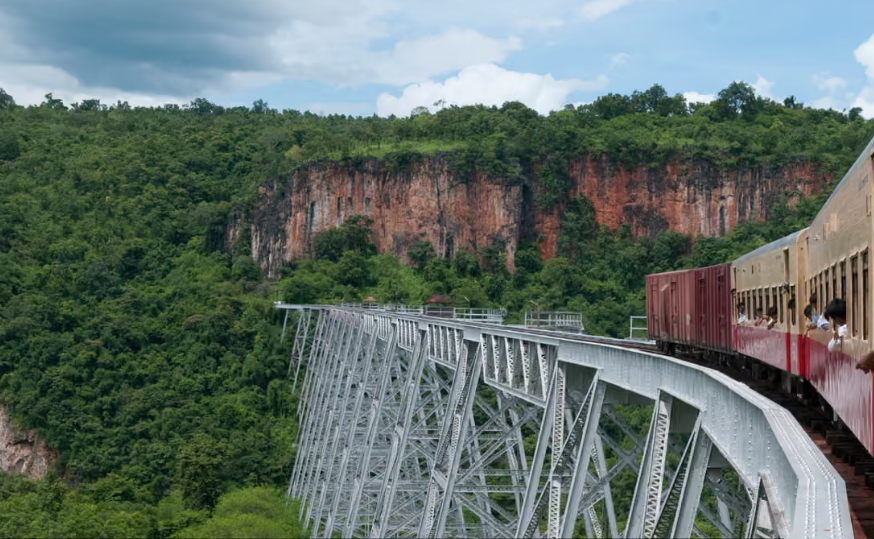
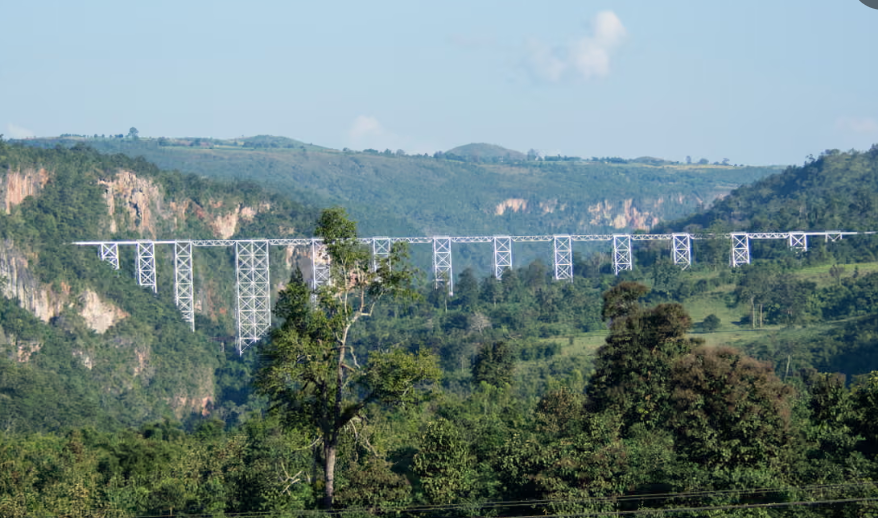
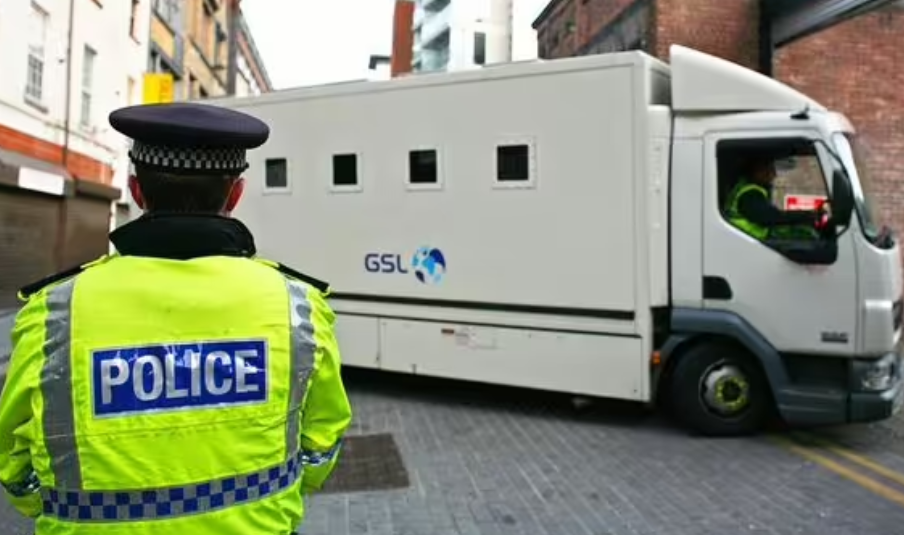
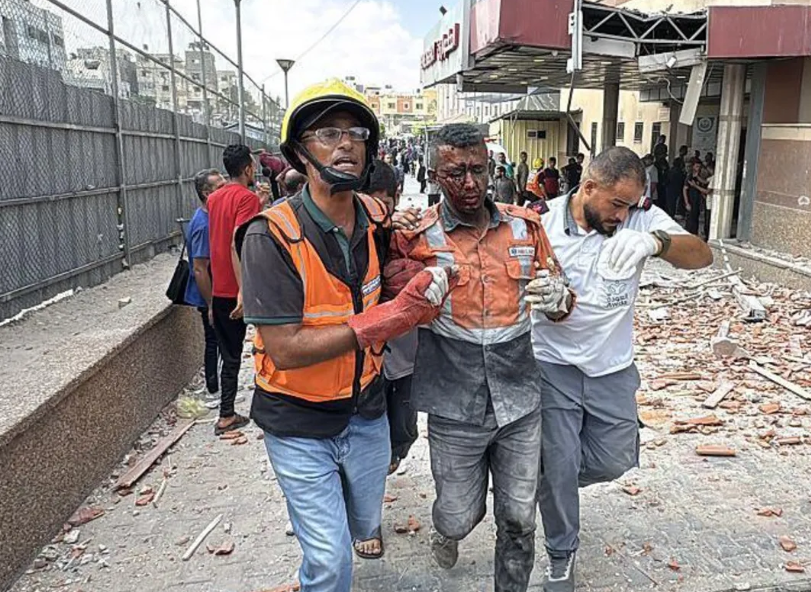

.webp.d9246c15b672773b04053afb3026869f.webp)
